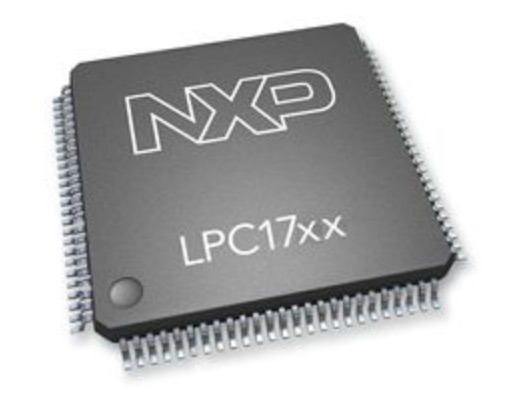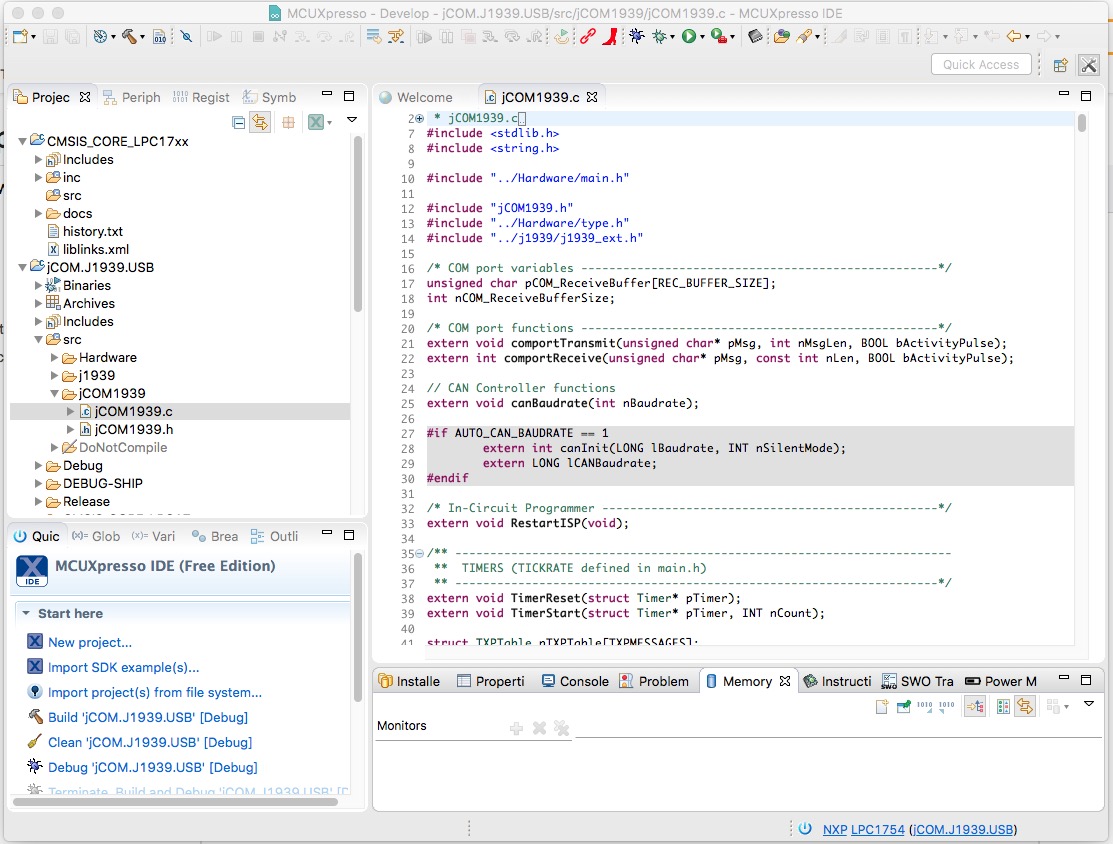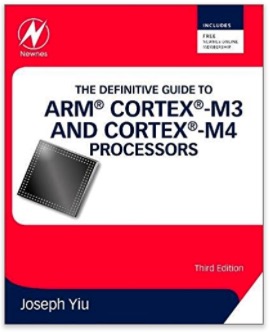Recent Posts
The MCUXpresso Integrated Development Environment (IDE)
Posted by on
This page is part of a series of posts by Wilfried Voss titled NXP LPC17xx ARM Cortex-M3 Microcontroller - Programming Tips & Tricks, explaining the programming of embedded systems using the ARM Cortex-M3 processor.
The MCUXpresso IDE brings developers an easy-to-use Eclipse-based development environment for NXP MCUs based on ARM® Cortex®-M cores, including, among many others, the LPC series processors. The MCUXpresso IDE offers advanced editing, compiling and debugging features with the addition of MCU-specific debugging views, code trace and profiling, multicore debugging, and integrated configuration tools.
The MCUXpresso IDE is available in full-featured free (code size unlimited) and affordable professional editions.
For a few years now, I have been programming embedded solutions with the ARM Cortex M3 processor, mainly the LPC1754 and LPC1768, using the LPCXpresso Integrated Development Environment (IDE). In the meantime, LPCXpresso has been replaced by the MCUXpresso IDE.
As with the old version, MCUXpresso is a free download, and, other than the free LPCXpresso version, its code size is unlimited. There is also a "professional" version of LPCXpresso that allowed the use of unlimited code size, but I personally reached the point where that was necessary.
Features
- A free-of-charge code size unlimited IDE for Kinetis and LPC MCUs, and i.MX RT crossover processors
- Integrated configuration tools, including pins, clocks and peripheral tools
- Based on LPCXpresso and Kinetis Design Studio IDEs with specific enhancements to simplify MCU application development and debugging
- Industry-standard GNU toolchain with a choice of libraries: optimized C library or the standard GNU Newlib/Nano library
- Built in support for LPC Cortex-M MCUs, as per LPCXpresso IDE v8.2
- Support for Kinetis SDK v2 devices, as per Kinetis Design Studio v3.2
- Support for new LPC and Kinetis MCUs via integration with MCUXpresso SDK packages
- Support for CMSIS-DAP debug probes
- Includes support for MTB and ETB instruction trace
- Includes support for SWO trace and profiling (via LPC-Link2 only)
- Support for P&E and Segger debug probes
- Support for FreeRTOS aware debugging
- Can be extended with many Eclipse plug-ins
- Host operating systems:
- Microsoft® Windows® 7/8/10
- Ubuntu Linux® (64 bit)
- Mac OS X 10.11 and later
- Pro Edition also available for purchase, providing additional features and support entitlement in the use of MCUXpresso IDE
More Information
- General information on the MCUXpresso Integrated Development Environment (IDE)...
(This link also leads to the download section, and it requires registration.) - Download/ View the MCUXpresso IDE - User Guide (PDF)...
The Definitive Guide to ARM Cortex-M3 and Cortex-M4 Processors
This new edition has been fully revised and updated to include extensive information on the ARM Cortex-M4 processor, providing a complete up-to-date guide to both Cortex-M3 and Cortex-M4 processors, and which enables migration from various processor architectures to the exciting world of the Cortex-M3 and M4.
This book presents the background of the ARM architecture and outlines the features of the processors such as the instruction set, interrupt-handling and also demonstrates how to program and utilize the advanced features available such as the Memory Protection Unit (MPU).
Chapters on getting started with IAR, Keil, gcc and CooCox CoIDE tools help beginners develop program codes. Coverage also includes the important areas of software development such as using the low power features, handling information input/output, mixed language projects with assembly and C, and other advanced topics.
- Two new chapters on DSP features and CMSIS-DSP software libraries, covering DSP fundamentals and how to write DSP software for the Cortex-M4 processor, including examples of using the CMSIS-DSP library, as well as useful information about the DSP capability of the Cortex-M4 processor
- A new chapter on the Cortex-M4 floating point unit and how to use it
- A new chapter on using embedded OS (based on CMSIS-RTOS), as well as details of processor features to support OS operations
- Various debugging techniques as well as a troubleshooting guide in the appendix
- topics on software porting from other architectures
- A full range of easy-to-understand examples, diagrams and quick reference appendices
 Loading... Please wait...
Loading... Please wait...



